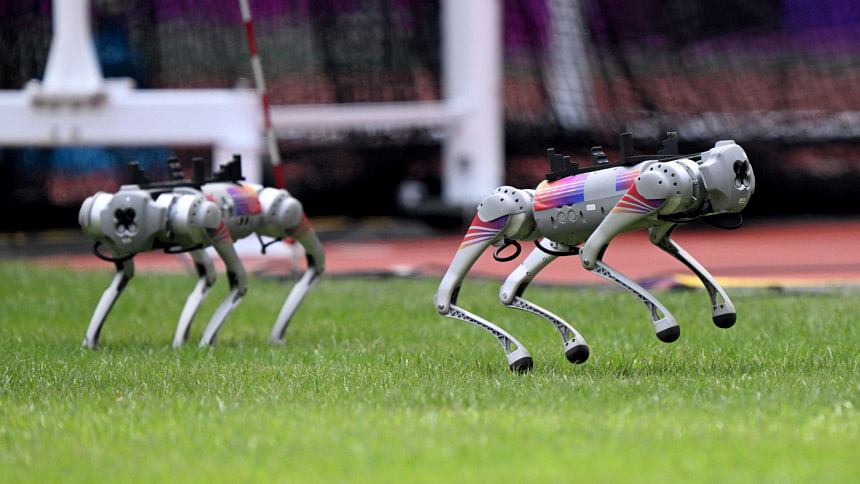UN, Red Cross want bans, curbs on killer robots

The United Nations and the Red Cross this week issued a joint call for urgent new international rules to protect humanity from the potential "terrible consequences" of autonomous weapons.
UN secretary general Antonio Guterres and Mirjana Spoljaric, president of the International Committee of the Red Cross, on Thursday said getting to grips with so-called killer robots was a global "humanitarian priority".
They called on states to establish specific bans and restrictions on autonomous weapon systems by 2026, "to shield present and future generations from the consequences of their use".
"In the current security landscape, setting clear international red lines will benefit all states," they said.
Autonomous weapon systems -- generally understood as weapon systems that select targets and apply force without human intervention -- "pose serious humanitarian, legal, ethical and security concerns", they said.
Guterres and Spoljaric said their development and proliferation had the potential to change the way wars are fought and thereby fuel global instability.
"By creating a perception of reduced risk to military forces and to civilians, they may lower the threshold for engaging in conflicts -- inadvertently escalating violence," they explained.
"We must act now to preserve human control over the use of force. Human control must be retained in life and death decisions. The autonomous targeting of humans by machines is a moral line that we must not cross.
"Machines with the power and discretion to take lives without human involvement should be prohibited by international law."
The UN and ICRC chiefs said their concerns had been heightened by the increasing availability and sophistication of new technologies such as Artificial Intelligence, which could be integrated into autonomous weapons.
The pair called for a ban on autonomous weapon systems which function in an unpredictable way -- for example weapons controlled by machine-learning algorithms -- calling them "an unacceptably dangerous proposition".
The UN and ICRC heads also called for clear restrictions on all other types of autonomous weapons, including limits on their use, they type of targets they strike and the scale of force used.
While international law prohibits certain weapons and restricts the use of others, without a specific agreement on autonomous weapons, countries could hold "different views" on how these rules might apply.
"New international rules on autonomous weapons are therefore needed to clarify and strengthen existing law," they said, calling them "essential to avoiding terrible consequences for humanity".
"We call on world leaders to launch negotiations of a new legally binding instrument to set clear prohibitions and restrictions on autonomous weapon systems and to conclude such negotiations by 2026," they said.
Talks on killer robots have taken place in recent years at the UN in Geneva but countries are yet to find enough common ground to launch real negotiations.

 For all latest news, follow The Daily Star's Google News channel.
For all latest news, follow The Daily Star's Google News channel. 



Comments